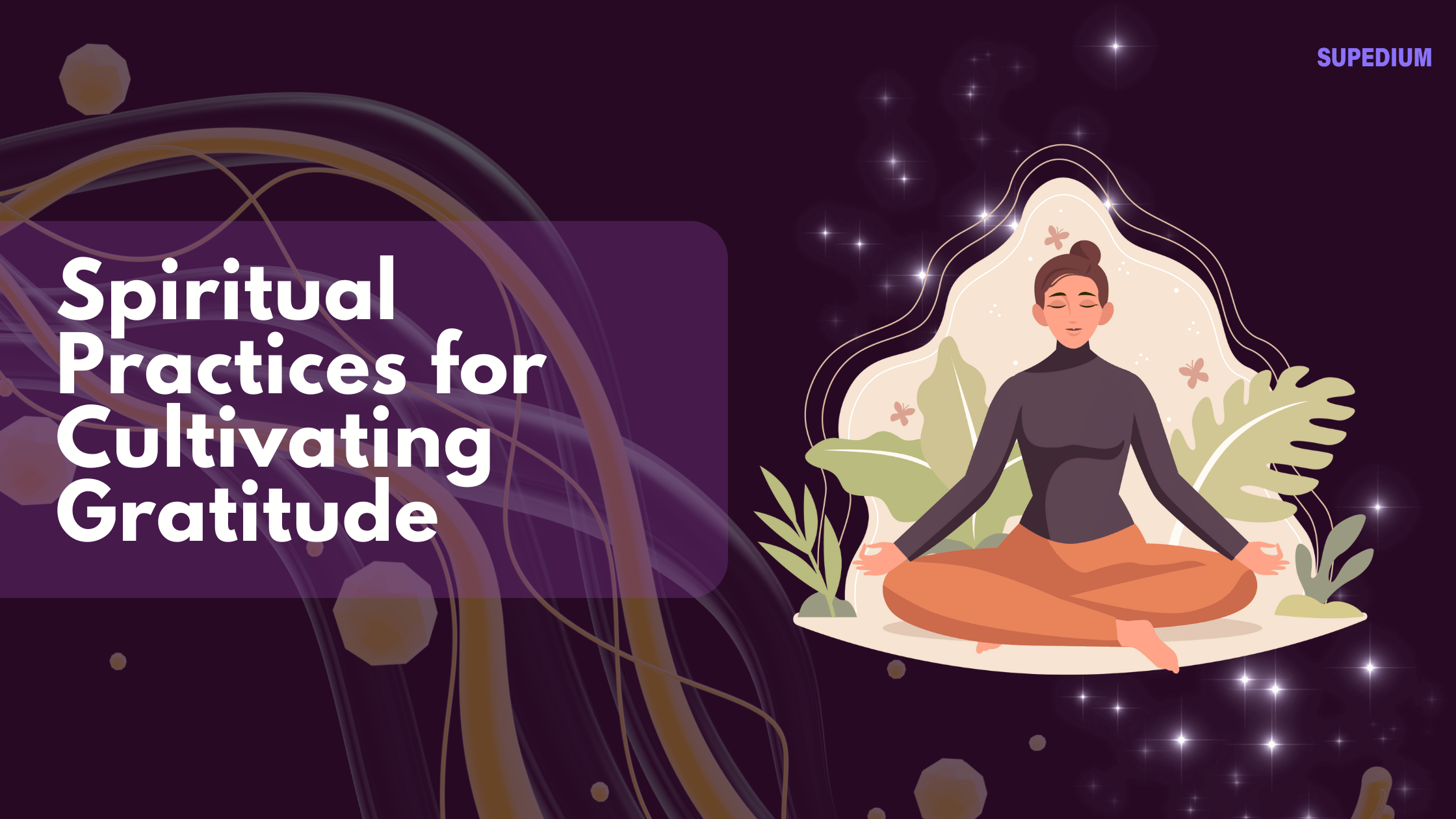Table of Contents
![]()
I. Introduction
Gratitude is more than just a fleeting emotion; it’s a profound spiritual state that connects us to ourselves, others, and the universe. Defined as the quality of being thankful, gratitude involves recognizing the goodness in our lives and appreciating the sources of that goodness. Across cultures and spiritual traditions, gratitude plays a vital role in enhancing well-being and fostering a sense of community. This article explores various spiritual practices designed to cultivate gratitude, emphasizing their benefits in daily life.
II. The Spiritual Significance of Gratitude
A. Historical and Cultural Perspectives
Gratitude is a recurring theme in many spiritual traditions. In Christianity, for instance, expressions of thankfulness are woven into prayers and worship. Buddhism emphasizes gratitude as a key element of mindfulness and compassion, fostering a connection with all beings. Hinduism views gratitude as essential to the practice of dharma and respect for the interconnectedness of life. Indigenous cultures often practice reciprocity with nature, emphasizing gratitude for the land and its resources.
B. Psychological and Spiritual Benefits
Research indicates that cultivating gratitude can lead to significant psychological benefits, including enhanced mental well-being and reduced stress levels. Spiritually, gratitude fosters a deeper connection to oneself and the universe, encouraging mindfulness and presence. When we practice gratitude, we shift our focus from what we lack to what we have, nurturing a more positive outlook on life.
III. Spiritual Practices for Cultivating Gratitude
A. Mindfulness and Meditation
- Guided Gratitude Meditations: Engaging in guided meditations focused on gratitude can deepen your sense of appreciation. These meditations often involve visualizing aspects of your life that you are thankful for and can be found in numerous online resources.
- Mindful Awareness of Daily Blessings: Incorporating mindfulness into daily activities allows you to recognize and appreciate small blessings. Try to pause and acknowledge the beauty in everyday moments, such as a warm cup of tea or a friendly smile.
B. Journaling
- Gratitude Journals: Keeping a gratitude journal is a powerful practice. Start by listing three to five things you are grateful for each day. This habit helps reinforce positive thinking and emotional resilience.
- Letter Writing: Writing letters of gratitude, whether to yourself or to others, can be transformative. Articulating your appreciation fosters deeper connections and can bring about a sense of closure or healing in relationships.
C. Prayer and Affirmations
- Prayers of Gratitude: Many spiritual traditions incorporate prayers that express gratitude. Craft your own prayer to personalize your spiritual practice, focusing on the aspects of your life for which you are thankful.
- Gratitude Affirmations: Positive affirmations centered around gratitude can shift your mindset. Examples include “I am grateful for the abundance in my life” or “I appreciate the love that surrounds me.” Repeating these affirmations daily can help ingrain gratitude into your consciousness.
D. Rituals and Ceremonies
- Seasonal Rituals of Gratitude: Participating in seasonal celebrations, such as Thanksgiving or harvest festivals, allows you to connect with the cycles of nature and reflect on your blessings collectively.
- Personal Ceremonies: Creating a personal ceremony to honor your gratitude can be a meaningful practice. Consider setting up a gratitude altar with items that represent what you’re thankful for, or gather friends and family to share expressions of gratitude.
E. Nature-Based Practices
- Connecting with Nature: Nature has a unique ability to foster gratitude. Spend time outdoors, practicing observation and appreciation for the beauty and intricacy of the natural world. Nature walks can serve as a meditative practice, enhancing your sense of connection.
- Seasonal Changes and Gratitude: Reflecting on the changing seasons can deepen your gratitude. Each season offers unique lessons and gifts; take time to appreciate the transitions and the life they bring.
IV. Integrating Gratitude into Daily Life
A. Daily Habits
Incorporating gratitude into your daily routine can be simple yet profound. Consider establishing morning and evening practices where you reflect on what you are grateful for. Setting reminders, such as sticky notes or alarms, can serve as prompts to pause and appreciate your blessings throughout the day.
B. Cultivating a Gratitude Mindset
Developing a gratitude mindset involves consciously shifting your focus from scarcity to abundance. When negative thoughts arise, challenge them by finding something to be grateful for in that situation. This practice can help rewire your brain for positivity and resilience.
C. Sharing Gratitude with Others
Acts of kindness and service can be powerful expressions of gratitude. Volunteer in your community or simply offer a helping hand to someone in need. Creating shared practices of gratitude, such as group reflections or community events, fosters a sense of belonging and interconnectedness.
V. Challenges in Cultivating Gratitude
A. Common Obstacles
Despite the benefits of gratitude, many people face challenges in practicing it consistently. Negative thinking patterns and life’s difficulties can overshadow feelings of gratitude. Additionally, cultural conditioning may inhibit expressions of thankfulness.
B. Strategies to Overcome Challenges
To overcome these obstacles, consider reframing negative experiences through the lens of gratitude. Instead of focusing solely on what went wrong, look for lessons learned or silver linings. Seeking support from community groups or spiritual circles can also provide encouragement and motivation.
VI. Conclusion
Gratitude is a transformative spiritual practice that enriches our lives in countless ways. By exploring various spiritual practices—from mindfulness and journaling to nature connection—we can deepen our appreciation for life’s blessings. Embracing gratitude not only enhances our own well-being but also fosters a sense of connection to the world around us. As you embark on your journey to cultivate gratitude, remember that even the smallest moments of appreciation can lead to profound shifts in perspective.
Share This





Be the first to comment